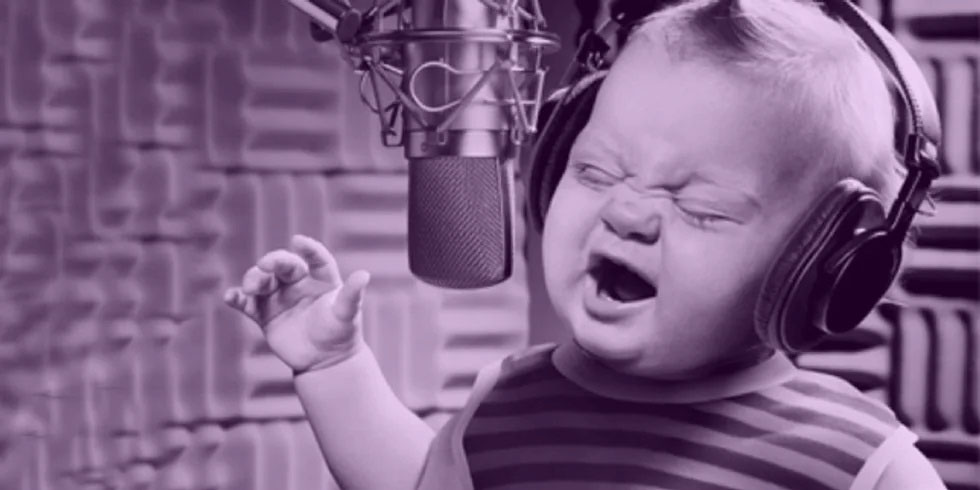As a vocal coach I often receive inquiries from parents wanting to know what age their child should be before they start taking singing or vocal lessons?
As you can imagine this is a bit of a contentious subject at the best of times. Some singing tutors are more concerned with securing additional revenue, rather than actually looking after there young students welfare.
Here’s my two cents on the subject. I have been working as a singer performer and vocal coach for over twenty years now and this is the advice that I provide for parents who believe there child is going to be the next Mariah Carey or Justin Beiber.
Kids can learn to sing at any age, providing they are old enough to have developed the physical motor skills for singing. They also need to be able to have an attention span for at least thirty seconds at a time. Also its really helpful if they actually want to be a singer when they grow up.
The parent should always be welcome to observe the lesson, and to have a good understanding of what their child’s vocal home work is and even how to perform the exercises in a simplified format.
I normally recommend that parents wait until there child is at least 8-10 years of age before commencing any kind of structured voice coaching.
If your child is serious about been a singer and wants to develop there voice to its full DNA genetic potential (see my previous posts for more information on the role that DNA genetics has in pre-determining maximum vocal growth potential). I recommend 15-16 years old is a good age to embark on vocal strengthening and conditioning programmes for the voice.
There are still some key factors to take into consideration primarily, regarding the changes going on in the voice box, but a good vocal coach will understand how to gradually build up the intensity of the programmes to a safe manageable level to produce rapid vocal results, while also continuing to safe guard the students voice from potential harm.
The earlier your child receives quality vocal coaching, mentoring and guidance, the sooner they can develop the correct techniques to properly support the development of their singing voice. The key benefit of early singing development is to reduce the time it takes to encourage the correct vocal muscle cordinations. By learning to develop the correct singing habits at an early age these singers can more easily avoid the pit falls associated with unhealthy singing habits that can form later on.
But back to the subject at hand.
Children’s voices literally continue to grow and develop right up to the age of twenty. During this time the actual voice box will grow in size and so will the vocal chords, and the tendons and the ligaments and cartilages that make up their individual vocal anatomy.
Its important for the vocal coach, to have a thorough understanding of the safe way to develop a child’s singing voice, due to the very fragile nature of their vocal chords (children’s vocal chords, are small, extremely thin but very flexible from 3-12 years old) and grow much thicker as they grow older and naturally retain flexability up to mid twenties). Children naturally experience large growth spurts through puberty and through out there teen age years. During these early years we want to avoid placing too greater strain on the developing chords and the vocal mechanisims that make up the voice!
This means that a good knowledgeable vocal coach, understands the importance of introducing vocal exercises that focus more on flexibility *during the formative years of a childs physical development) and encourages relaxed open released singing practices, rather than trying to race too early into vocal strengthening exercises.
Yes I have heard of instances where young children have damaged their vocal chords because the voice coach was inexperienced and was encouraging his/ her young charges to use adult vocal strengthening programs.
The most important goal of any vocal lesson regardless of the age of the student is to have fun, and gain an increased confidence with there voice so singing becomes easier, adopting this approach is a sure fire recipe for achieving rapid vocal results! The #1 responsibility of the vocal coach is to safely grow the voice of the singer, at a pace that matches the singers own genetic potential for their unique vocal muscle growth and development!
Better singing everyone.

